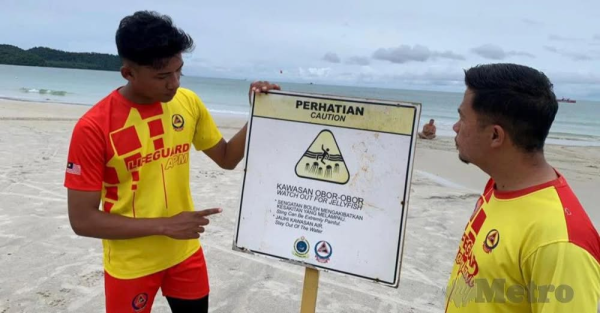LANGKAWI, 25 November 2025: The Langkawi Development Authority (LADA) has expressed heartfelt condolences to the family of the two-year-old Russian child who tragically died on 19 November 2025 due to complications from a jellyfish sting at Pantai Cenang.
LADA issued the following statement:
“We share in the family’s profound sorrow during this unimaginably difficult time and hold them close in our thoughts. This heartbreaking incident has impacted our entire community, highlighting the gravity of the situation.

“Our hearts go out to the child’s parents, and we admire their strength in sharing their experience, hoping to raise awareness about the dangers posed by box jellyfish in our tropical waters.
“This tragedy serves as a reminder of the unpredictable nature of the marine environment. While Langkawi continues to be one of Malaysia’s most treasured island destinations, the safety of our visitors remains our highest priority. We will continue strengthening preventive measures and emergency readiness in close collaboration with experts, authorities and our tourism community.
“LADA, together with the Langkawi Municipal Council Tourism City (Majlis Perbandaran Langkawi Bandaraya Pelancongan (MPLBP)), the Langkawi District Office and other relevant government agencies, remain fully committed to prioritising the safety and well-being of every visitor to the island.
“To strengthen our understanding and preparedness, LADA is working closely with the Centre for Marine and Coastal Studies (CEMACS), Universiti Sains Malaysia (USM), Penang, to study Jellyfish behaviour and population patterns in Langkawi waters. This collaboration allows us to introduce evidence-based safety measures and improve response capabilities for both tourists and local communities.”
In line with LADA’s commitment to public safety, several actions are being reinforced:
Enhancing safety advisories, informational signage, and visibility at high-traffic beaches.
Increasing coordination between beach patrol teams, lifeguards, watersports operators, tourism operators, and nearby resorts and hotels.
Strengthening public awareness campaigns on jellyfish activity, seasonal risks and safe swimming practices.
Prioritising beach monitoring, especially during peak jellyfish seasons.
How to respond to Jellyfish stings
1. Leave the water immediately. This helps prevent further contact with jellyfish and reduces the risk of drowning due to shock.
2. Do not rub the affected area. Rubbing may cause more venom to be released.
3. Rinse the sting with vinegar (acetic acid) as soon as possible.
4. Avoid rinsing with fresh water, alcohol or applying ice directly to the wound. These actions may worsen venom discharge.
5. Carefully remove any visible tentacles, using tweezers or any material similar. Be careful not to rub the skin during this process.
6. Call 999 for emergencies; the number connects to the Malaysia Emergency Response Service (MERS), an integrated system for the police, fire, and medical services, or proceed to the nearest clinic or hospital without delay.
7. If the victim has difficulty breathing or becomes unresponsive, begin CPR right away while waiting for professional help.
“Following these steps can significantly reduce the sting’s severity and improve the chances of recovery. This tragedy serves as a reminder of the unpredictable nature of the marine environment. While Langkawi continues to be one of Malaysia’s most treasured island destinations, the safety of our visitors remains our highest priority. We will continue strengthening preventive measures and emergency readiness in close collaboration with experts, authorities and our tourism community.”
(Source: Langkawi Development Authority (LADA)






